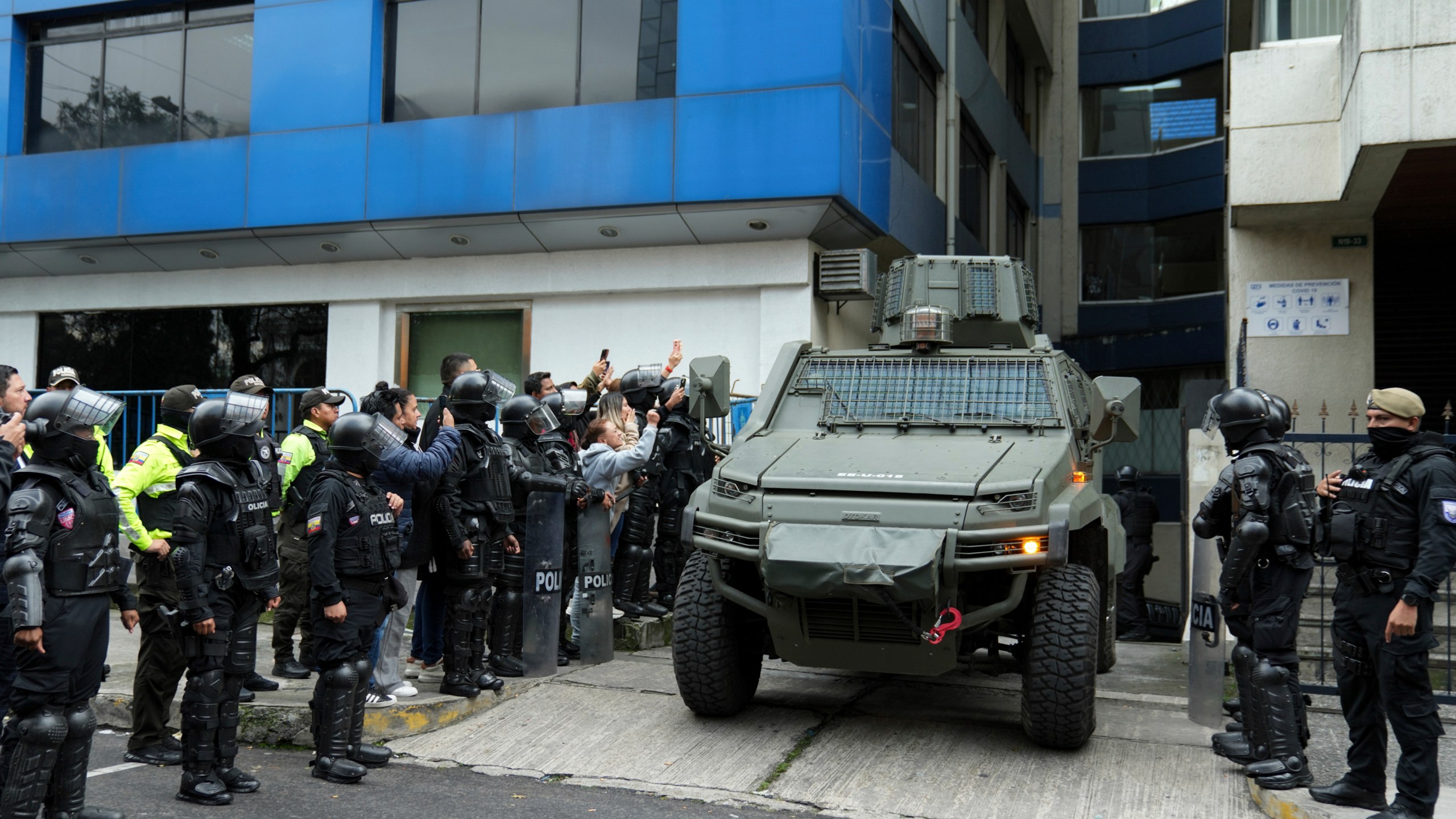A dramatic legal showdown is set to unfold at the International Court of Justice (ICJ) as Mexico and Ecuador clash over a recent embassy raid. The incident, which occurred in April, saw Ecuadorian forces storm Mexico’s embassy in Quito to arrest a former vice president seeking asylum. Mexico contends that the armed raid violated the Vienna Convention, a UN treaty on diplomatic relations, and is seeking Ecuador’s suspension from the UN.
The altercation, captured on surveillance footage, depicted Ecuadorian police apprehending Jorge Glas, Ecuador’s former vice president, who had been convicted of corruption. Despite international condemnation, Ecuador’s President Daniel Noboa remains steadfast, defending the raid. Mexico’s aim in the ICJ hearing is to secure provisional measures to ensure the protection of diplomatic premises and prevent the dispute from escalating.
In a retaliatory move, Ecuador has filed its own lawsuit against Mexico at the ICJ, alleging violations of international conventions and agreements. The friction between the two nations has sparked a broader diplomatic crisis, with several Latin American leaders rallying behind Mexico and severing ties with Ecuador.
This dispute adds another layer to Ecuador’s recent challenges on the international stage, following the high-profile expulsion of WikiLeaks founder Julian Assange from the Ecuadorian Embassy in London. Noboa’s administration, amidst a security crisis plagued by drug cartel violence, has faced scrutiny for its handling of diplomatic affairs.
The conflict revolves around Jorge Glas, who sought asylum in Mexico amid embezzlement charges, claiming political persecution. His ties to the former President Rafael Correa underscore broader political divisions within Ecuador, as Noboa navigates the country’s security challenges and seeks to implement reforms.
As the legal battle unfolds at the ICJ, the outcome remains uncertain, but the clash highlights the complexities of diplomatic relations in Latin America and the enduring struggle for political stability in the region.
